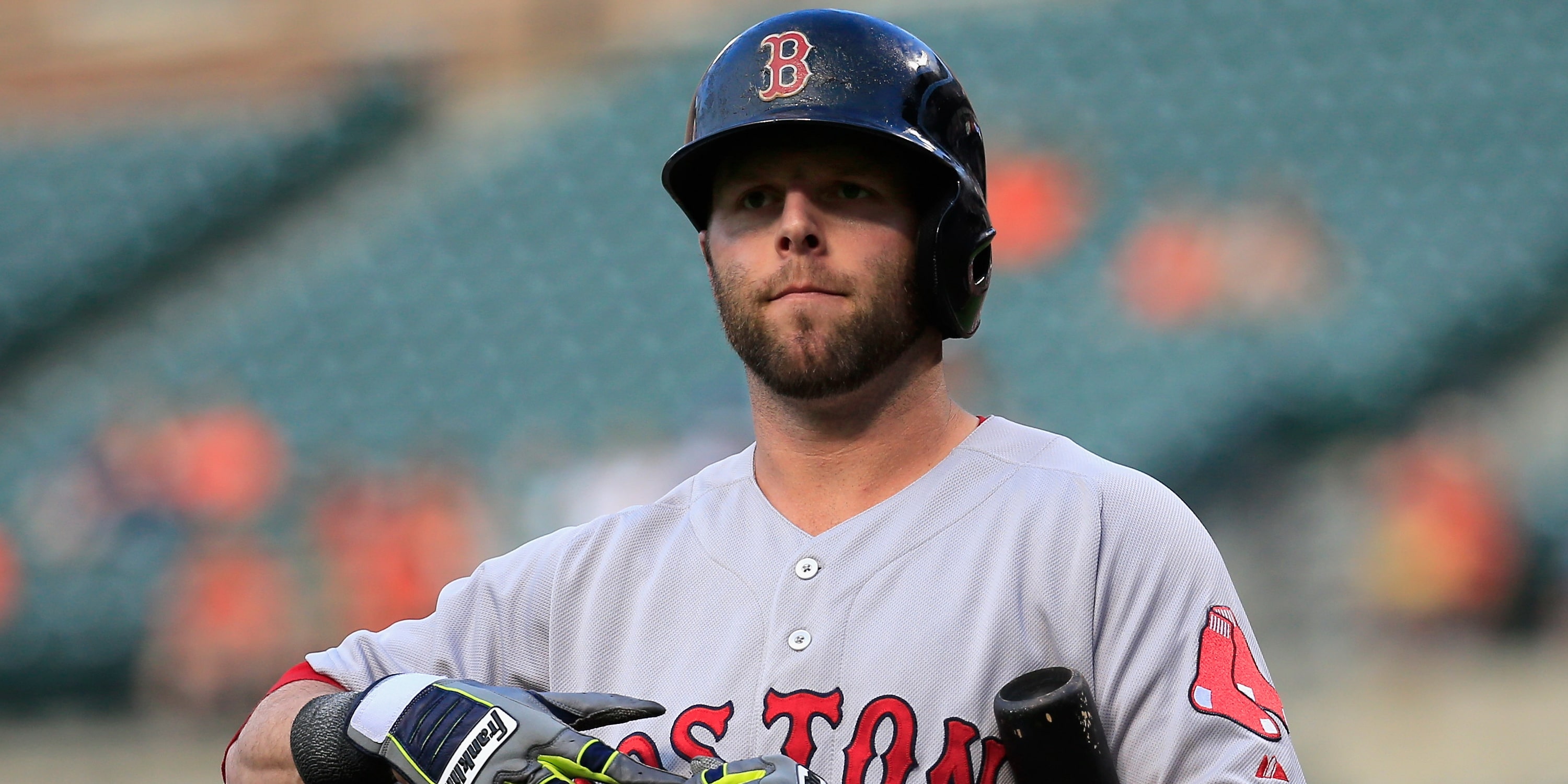Dustin Pedroia Net Worth: What Shapes A Baseball Legend's Financial Picture?
When we think about the careers of famous athletes, like a beloved baseball star, it's natural to wonder about their financial standing. How do they build wealth? What does their financial journey look like after the cheers of the crowd fade? Exploring someone's net worth, especially for a figure like Dustin Pedroia, means looking at more than just a single number; it's about understanding a collection of financial choices and opportunities that, in a way, make up their entire economic story. Just like a vehicle needs 'quality auto parts' to keep 'cruising on down the road,' as one of our sources mentions, an athlete's financial journey is built from many different components.
Dustin Pedroia, known for his gritty play and remarkable skill on the baseball field, truly captured the hearts of many fans. His time with the Boston Red Sox was marked by incredible dedication and a competitive spirit that was, frankly, very hard to match. He was a key part of championship teams, which obviously adds to his legacy and recognition, you know.
So, when you hear a name like Dustin, it can make you think of different things. For some, it brings to mind a company that helps with 'IT solutions for their needs,' as described in one of our materials, providing things like 'smartphones' or 'laptops.' For baseball fans, though, the name Dustin immediately points to a celebrated athlete, Dustin Pedroia, and sparks questions about how a career of such impact translates into a financial footprint. This article will look at the various aspects that contribute to a prominent athlete's financial standing, using Pedroia as our example.
Table of Contents
- Biography and Personal Details
- The Foundation: Playing Career Earnings
- Beyond the Field: Endorsements and Sponsorships
- Life After the Game: Post-Playing Career Ventures
- Smart Money Moves: Investments and Financial Planning
- Factors Influencing an Athlete's Net Worth
- Frequently Asked Questions
Biography and Personal Details
To truly appreciate the scope of Dustin Pedroia's professional life, it helps to know a little about his background. His journey to becoming a baseball legend involved years of hard work and dedication, which, you know, is pretty typical for top athletes. Here are some basic details about him:
| Full Name | Dustin Luis Pedroia |
| Date of Birth | August 17, 1983 |
| Place of Birth | Woodland, California, USA |
| Height | 5 ft 9 in (1.75 m) |
| Weight | 170 lb (77 kg) |
| Position | Second Baseman |
| Bats / Throws | Right / Right |
| Major League Debut | August 19, 2006 |
| Last MLB Appearance | April 17, 2019 |
| Primary Team | Boston Red Sox |
| Career Highlights | 4x All-Star, AL MVP (2008), 4x Gold Glove, World Series Champion (2007, 2013) |
The Foundation: Playing Career Earnings
For most professional athletes, their primary source of wealth comes from their playing contracts. These agreements, which are sometimes incredibly complex, define the salary and bonuses a player receives over a set period. For a player like Dustin Pedroia, who had a long and very successful career, these contracts represented a substantial income stream. It's not just about the yearly salary, but also about signing bonuses, performance incentives, and, you know, any other clauses built into the agreement.
The length of a player's career, and the level of success they achieve, directly impacts the total amount they earn from playing. A player who consistently performs at a high level, like Pedroia did for many seasons, tends to secure larger and longer contracts. This steady income over many years forms the bedrock of their financial standing. It's a pretty straightforward concept, actually: the better you play, the more you get paid, usually.
However, it's also worth noting that a player's gross earnings from contracts are not what they take home entirely. There are, of course, taxes, agent fees, and other deductions that significantly reduce the actual take-home pay. Still, even with these deductions, the sums involved in professional sports contracts are substantial, setting players up for a very comfortable financial future if managed wisely. It's a big part of the picture, obviously.
Injuries, which are unfortunately a part of any physically demanding sport, can also affect a player's earning potential. While long-term contracts offer some protection, severe or recurring injuries can sometimes shorten a career or impact future contract negotiations. For Pedroia, injuries became a significant factor later in his career, which is something many athletes face, sadly.
The collective bargaining agreements between player unions and leagues also play a big role in shaping player salaries and benefits. These agreements set minimum salaries, establish rules for free agency, and determine revenue sharing, all of which indirectly influence how much a player can earn throughout their time in the sport. It's a system that, you know, tries to balance things out for everyone involved.
Beyond the Field: Endorsements and Sponsorships
While playing contracts form the core of an athlete's earnings, endorsements and sponsorship deals can significantly boost their overall wealth. For popular and successful players, companies are often very eager to associate their brands with a well-known face. This can include deals for sportswear, equipment, food and drink, or even local businesses. Dustin Pedroia, with his memorable nickname "Pedey" and his fan-favorite status, was certainly a candidate for such partnerships.
These deals are not just about wearing a brand's logo; they can involve appearing in commercials, participating in promotional events, or engaging with fans on social media. The value of an endorsement deal often depends on the athlete's popularity, their public image, and the reach of the brand. A player who is seen as relatable, hardworking, and successful, like Pedroia, tends to be a very attractive choice for advertisers. It's a big part of how some athletes really build their wealth, you know.
The longevity of a player's career and their continued presence in the public eye can also influence the duration and value of these endorsement deals. Even after retirement, some athletes maintain endorsement relationships, especially if they transition into broadcasting or other public roles. This provides a continued income stream long after their playing days are over, which is pretty neat.
It's important to remember that not every athlete secures major endorsement deals. These opportunities are often reserved for the most visible and marketable players in a league. Factors like charisma, media presence, and a clean public record can all play a part in attracting these lucrative partnerships. For someone who was as popular and recognizable as Pedroia, these opportunities were, arguably, quite present.
The type of sport also matters. Baseball, while very popular, might not generate the same global endorsement opportunities as, say, basketball or soccer, simply due to the different global reach of the sports. However, within baseball, top players like Pedroia certainly have a strong market for endorsements, especially with regional brands that connect with the team's fan base. It's a different kind of market, in a way, than what you might see in other sports.
Life After the Game: Post-Playing Career Ventures
When a professional athlete hangs up their cleats, their income streams don't necessarily dry up. Many former players transition into new careers or business ventures that continue to contribute to their net worth. These post-playing activities can vary widely, reflecting a player's interests and skills outside of their sport. For some, it's about staying connected to the game, while for others, it's about exploring completely different avenues.
A common path for retired athletes is to enter sports broadcasting or analysis. Their deep understanding of the game and their firsthand experience can make them valuable commentators. This offers a steady salary and keeps them in the public eye, which can also help maintain endorsement opportunities. You see this quite often, actually, with former players moving into media roles.
Some athletes choose to go into coaching or front-office roles within their sport. Their experience as a player can be incredibly beneficial in developing new talent or shaping a team's strategy. While these roles might not always command the same salaries as top playing contracts, they provide stable employment and a chance to continue contributing to the game they love. It's a way to give back, in some respects.
Beyond sports, many athletes venture into business. This could involve real estate investments, starting their own companies, or becoming brand ambassadors for non-sports-related products. Their name recognition and financial resources can give them a significant advantage in the business world. This requires a different set of skills than playing baseball, of course, but it can be very rewarding financially.
For some, philanthropy also plays a big role. While not directly contributing to net worth, establishing foundations or engaging in charitable work can enhance an athlete's legacy and public image, which can indirectly lead to other opportunities. It's about more than just money for many of them, to be honest.
The ability to adapt and find new passions after a demanding sports career is a key factor in long-term financial stability. Those who plan ahead and cultivate interests outside of their sport often find more success in their post-playing endeavors. It's a bit like preparing for a new season, you know, but in a totally different arena.
Smart Money Moves: Investments and Financial Planning
Earning a lot of money during a playing career is one thing; managing it wisely for the long term is another entirely. A significant portion of an athlete's net worth is often built through smart investments and careful financial planning. This involves more than just saving money; it's about making that money work for you, which is pretty important for anyone with substantial earnings.
Many athletes work with financial advisors who specialize in managing the unique financial situations of professional sports figures. These advisors help with everything from tax planning to setting up diversified investment portfolios. They might suggest investments in stocks, bonds, real estate, or even private equity ventures. The goal is to grow wealth over time and ensure financial security long after retirement. It's a very specialized field, you know.
Real estate, for instance, is a common investment choice. Properties can generate rental income, and their value can appreciate over time, adding to an individual's overall assets. For someone with significant capital, this can be a very stable way to build wealth. You see many public figures, including athletes, putting money into property.
Diversification is a key principle in financial planning. Spreading investments across different types of assets helps to minimize risk. A well-diversified portfolio is better equipped to weather market fluctuations and provide more consistent returns over the long haul. It's a pretty basic rule of investing, actually.
Retirement planning is also a big part of the picture. Athletes have relatively short careers compared to many other professions, so planning for life after sports is crucial. This includes setting up retirement accounts, pensions, and other long-term savings vehicles. The aim is to ensure a comfortable lifestyle for decades to come, which is, you know, what everyone hopes for.
The decisions made early in a career regarding financial management can have a huge impact on an athlete's net worth years down the line. Those who prioritize saving and investing, and who avoid extravagant spending, tend to be in a much better financial position later in life. It really is about making those smart choices from the beginning.
Factors Influencing an Athlete's Net Worth
An athlete's net worth is not just a simple sum of their contracts and endorsements. Many other elements can influence their overall financial standing, both positively and negatively. These factors can range from market conditions to personal choices, making each athlete's financial story quite unique, in a way.
Market conditions, for example, play a role. The value of investments can fluctuate with the economy. A strong stock market or a booming real estate market can significantly boost an athlete's portfolio, while downturns can reduce it. It's a bit like riding a wave, you know, sometimes it's up, sometimes it's down.
Personal spending habits are, arguably, one of the most significant factors. Even with high earnings, excessive spending on luxury items, lavish lifestyles, or poor investments can quickly erode wealth. Financial discipline is key to maintaining and growing net worth over time. It's about living within your means, even if those means are quite large.
Legal and financial advice quality also matters a lot. Working with reputable agents, lawyers, and financial advisors can help an athlete make sound decisions and avoid pitfalls. Conversely, bad advice or trusting the wrong people can lead to substantial financial losses. It's really important to have good people on your team, basically.
Taxes are another major consideration. High earners face significant tax obligations, and navigating complex tax laws requires expert guidance. Effective tax planning can help preserve more of an athlete's earnings, which is, you know, pretty essential for anyone in their position.
The length and health of a player's career, as mentioned earlier, directly impact their total earnings. Injuries, early retirement, or a decline in performance can shorten the window for earning top salaries. This underscores the importance of maximizing earnings during their peak years and planning for the future. It's a relatively short window for many of them, honestly.

Dustin Pedroia Net Worth - Net Worth Post

Dustin Pedroia Net Worth - Wiki, Age, Weight and Height, Relationships

Dustin Pedroia Net Worth - Wiki, Age, Weight and Height, Relationships